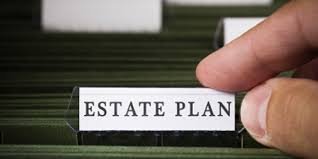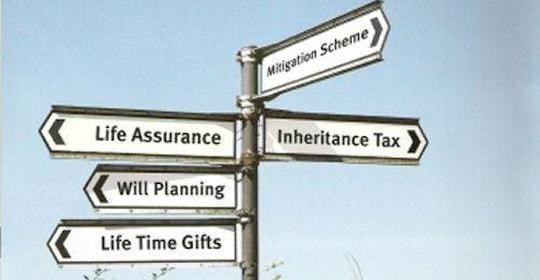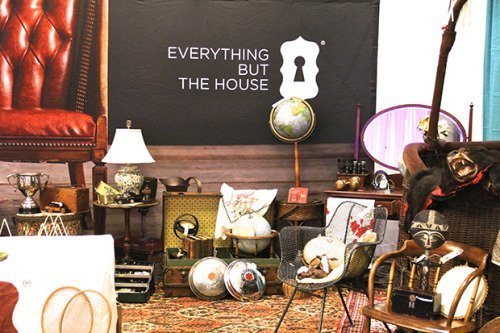You’ve Inherited Some Kamloops Real Estate. Now What?
Posted by Steve Harmer on Saturday, January 28th, 2017 at 10:41am.
 Canadian Estate Sale
Canadian Estate Sale
A tough time when family are faced with an Estate Sale, it's an emotional time and there are a number of factors to take into consideration. Most executors have to deal with selling some personal or household items for an estate and then the home itself. As most executors are new at that job, they may have questions about how to proceed. This post will explore ideas for selling the house and items properly, without short-changing the estate or getting the executor into trouble. A huge benefit to an executor is a professional Realtor who has the communication skills to work with all involved and make it as stress free and open as possible.
Unlike the U.S., Canada no longer has any form of estate or inheritance tax. Yet despite this, death can trigger a significant income tax bill that, if not properly planned for, can leave an unexpected liability when a loved one passes away.
What are BC Probate Fees?In British Columbia, fees are charged to an estate prior to receiving a grant of probate, these are called “probate fees.” Obtaining a grant of probate is the process by which a will is validated or approved by a court. If an estate’s value is over $25,000 it must be probated before the assets can be distributed. If an estate’s value $25,000 or less, there are no BC probate fees. If you are named as an executor in a will, we can help you with your probate application.
Your last name doesn’t need to be Hilton to inherit a fortune anymore—at least not in Canada. According to a study conducted by BMO Investorline, Canada is in the midst of experiencing the largest intergenerational wealth transfer in history, with an estimated $1 trillion being transferred over the next two decades. The financial forecast looks favourable for the Baby Boomers who make up the majority of those receiving the funds, as they can look forward to inheriting an average amount shy of the $100,000 mark. Not all estates are planned equally, however, with assets ranging from stocks and securities to land and real estate investment, questions surrounding Canada Inheritance Tax rates and Capital Gains arise.
Government of Canada information on When A Family Member has died
The Non-Existent Inheritance Tax Canada Has (Or Doesn’t Have)

Is there an inheritance tax in Canada? In Canada, there is no inheritance tax. Instead the CRA treats the estate as a sale, unless the estate is inherited by the surviving spouse or common-law partner, where certain exceptions are possible. This means that the estate pays the taxes owed to the government, rather than the beneficiaries paying.
The Canadian Government does not levy an inheritance tax against beneficiaries, however, when a person passes on, their legal representative prepares a final tax return. Known as a “deceased tax return”, it is reviewed by the CRA and the estate of the deceased pays any taxes owing.
Can You Explain Capital Gain?
According to the Canada Revenue Agency, when you sell capital property at a profit, the result is capital gain. Real estate, securities and certain investments are considered capital property by the CRA, and when these assets are sold at a higher price than what was originally paid, the return is taxable. In the event that the real estate sold is your primary residence, there are no taxes owing on the capital gains from the sale (as of January 2017, this may change with new Canadian tax rule changes). Although there is no real death or inheritance tax in Canada, some capital gains resulting from the sale of inherited assets are taxable.
Capital Pains
Let’s face it—no investor wants to pay taxes on capital gains and unless you’re planning on living forever, a visit from the taxman is inevitable. The good news is that only 50% of capital gains are taxable. For example, if you paid $65,000 for a cottage in 1990 and are planning to sell it at its Fair Market Value, which is now $250,000, you are only obligated to pay taxes on $97,500. Keep in mind the fact that your assets saw capital gains means that your investments yielded a return. If your assets are continually depreciating in value or see no growth, then you should probably consider reassessing your portfolio or firing whoever is managing it.
The Intricacies of Inheriting a Secondary Residence or Commercial Property
When a loved one passes, he or she may have owned a house or a cottage, or even commercial real estate at the time of their death. If there is capital gain on the property, which is often the case, it is only subject to taxation if it is a secondary residence. If the property is the primary residence, then the estate is not subject to capital gains tax.
What happens if you are currently a homeowner and inherit your parents’ primary residence? If you are a Baby Boomer, chances are you already own a home and are considering selling your parents’ house. Because this wouldn’t be your primary residence, the CRA would consider the profit of the sale income, and it would be subject to capital gains tax. Taxes owing on a sale are determined by subtracting the Fair Market Value (FMV) of a home by its sale price, less any expenses. If you sold the home upon inheritance or soon after, the capital gains tax would be nominal since you would most likely be selling it close to, or at FMV.
A real estate property which was the deceased’s principal residence and has remained vacant since the date of death will be taxed on any gain in value from the date of death. It does not matter if it was the deceased’s principal residence and it does not matter if the property was sold in 6 months, 5 years or a decade after death.
There are several other scenarios in which an heir is left with the decision of selling a property or using it as an income property. Even if you are left with property (rental or commercial for example) and choose not to sell it but continue it's use as a rental property there are taxable ramifications. Although no actual sale takes place, the building titles will be transferred to yourself. The properties are then in a state of deemed disposition—like capital gains taxes, you would pay income taxes on their Fair Market Value as they were deemed sold upon the death. You would then be liable for tax on the income earned from the properties.
Can we avoid the tax?
 Many parents want to leave as much cash and property as they can to their children. However, there are tax, probate and inheritance traps that can cause missteps.
Many parents want to leave as much cash and property as they can to their children. However, there are tax, probate and inheritance traps that can cause missteps.
The most common mistakes, which are often accidental and stem from a lack of knowledge, result in inheritance conflicts, the payment of additional income taxes and most importantly, prevent parents from achieving their goal of maximizing their family’s wealth.
Houses and cottages
To save on probate fees or to deal with inheritance issues, parents sometimes decide to transfer 50 per cent ownership of their home to one or more of their children. For income tax purposes, these transfers are equivalent to a partial sale. If the house is the parents’ principal residence (or “PR”), there are no tax consequences to the parents (assuming their cottage is not their PR). However, if the child has a PR of their own, they will likely be taxed on 50 per cent of any future appreciation of the parents’ home.
As a rule of thumb, parents should not transfer their homes to their children, since the net result is almost always the conversion of a tax-free gain on their PR into a taxable gain in the hands of the children, leading to less overall family wealth. In most cases, a better tax strategy is for parents to keep the house in their name until they die. If you own a cottage, the same “phantom sale” results if you transfer it to one of your children. In some cases this is a misstep, which results in a pre-payment of tax.
In other cases, the transfer of a cottage is part of effective tax planning. The idea is that you pay taxes now on the “sale,” so that future growth in the cottage value accrues to the child instead of you. Rather than transfer the cottage ownership, some parents obtain life insurance to cover the resulting income tax liability upon their death. However, the cost of the insurance may ultimately reduce the family’s wealth, so it is important to weigh these options carefully.
Bank accounts
As parents age, it is common for one of them to change their bank account (or brokerage account) to a joint account with one of their children (called joint tenancy), to avoid getting hit with probate fees. Despite creating a joint account, these parents often continue to report the income from the bank account on their own tax return. In essence, they just want to avoid probate fees and not actually transfer half the bank account to their child.
This is a common misstep, since Canada Revenue Agency has said that when someone just changes the name on a bank account, yet still has beneficial ownership of the bank account, there is no true joint tenancy and the transfer will fail to reduce probate fees. So unless you transfer true ownership of the bank account – one indication of this may be your child reports half the income on their return, you have not minimized your probate fees or maximized your family wealth. Another danger for larger families is that by listing just one child as a joint tenant on the bank account, the child may consider the account theirs and not their siblings, which can lead to estate litigation. Documentation of intention for the account is a must.
When considering changing an account to joint, parents should consider full disclosure to all their children about their intentions and how the account should be reported for tax purposes.
It's not just the house
When talking about selling items, I'm assuming that the executor has already given away any specific items that were left to specific beneficiaries. Obviously if a Will or Memorandum of Personal Effects requests that an item be given to someone, that item isn't going to be sold unless the beneficiary has already passed away. Before you start selling anything, make sure that you have read the Will carefully, or your lawyer has done so on your behalf, so that you do not accidentally sell someone's inheritance.The first step is to determine what you're dealing with. Is the deceased's home full of valuable artwork, antiques, jewelry or collections? Is it a rural property, with equipment, vehicles and tools? Is it your average home with regular furniture and possessions, but nothing of outstanding monetary value?
The majority of estates don't need a formal estate sale, and I'll get to more suitable options in a moment. For a home that is full of valuables, or a rural home with a lot of equipment, it just might be a good idea to hold an estate sale. The best way to do this is to contact an auction house in your province (look up "auction" on google or in the Yellow Pages). Try to give them an idea over the phone of what you're dealing with. For example, did the deceased leave a box full of antique jewelry? A set of eight original oil paintings? A rebuilt 1947 car?
If the auction house thinks that an estate sale is the way to go, they'll send someone out to take a look at the items. They will probably give you an estimate on what price could be expected, and set a general timeline for a sale. The sale might be conducted right from the deceased's home, or the items might be taken to the auction house for inclusion in a larger sale there. Make sure you get a detailed list and signed receipt for any items taken.
When using an auction house, be prepared for the fact that they will probably advertise the sale in the local paper (they don't use the deceased's name). Also, remember that they will take their pay out of the sale proceeds before handing the net amount to you. As mentioned earlier, the majority of estates don't need to go through an estate sale. The executor will be responsible for finding other ways of selling the household and personal goods. Some common ways of doing this are:
- hold a garage sale
- sell goods privately to beneficiaries, family members, friends etc - remember to sell at fair market value
- advertise goods on eBay, in newspapers, etc.
- take unusual items (e.g. a hockey card collection) to a dealer
- sell to second-hand shops
There are always items that are not worth much money. These might be small appliances, used clothing, used books, used DVDs, etc. If family members don't want these items and the executor can't sell them, they can be donated to a charity such as Goodwill. If they are of little value, don't expect a charitable receipt. The executor should keep careful records of items going out and money coming in. Remember that personal items are more likely to be the cause of a family fight than money or property. The executor should keep any bills of sale, receipts, inventories or charitable receipts.
All money generated from any of these sources should be deposited into the estate account. Rather than the executor taking out his expenses (such as shipping) and depositing the rest, it is safer and more transparent to deposit all of the money and then make a separate payment to the executor for expenses.
As with any event always take the best advice when making decisions involving tax and income.
© http://highgateproperties.ca/youve-inherited-some-real-estate-now-what/

